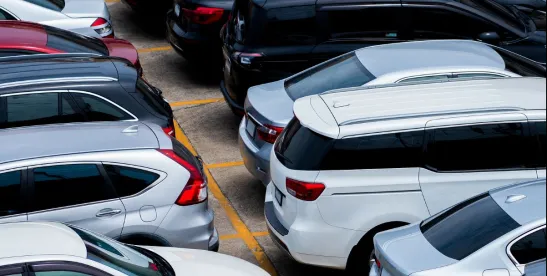It is expected that the next few years will be a challenging time for manufacturers in Mexico, with the automotive industry being particularly vulnerable as multiple pressure points come to a head: (1) the United States-Mexico-Canada Agreement (USMCA) will soon undergo its 2026 mandatory revision, which will largely focus on China’s expanding market presence in Mexico and may provide the opportunity for the United States to introduce increased protectionist measures; (2) significant limitations will be placed on U.S. automotive sales and importation of connected vehicles affiliated with China and Russia; and (3) increasing compliance audits in the Manufacturing, Maquila and Export Services Industries (IMMEX) Program. The combination of these forthcoming issues may represent a perfect-storm scenario for automotive manufacturers with operations in Mexico.
USMCA’s 2026 Revision Will Focus on China’s Expanding Market Presence and Provide Opportunity to Expand Protectionist Measures
The USMCA is scheduled to be reviewed during Presidents Sheinbaum and Trump´s administrations. On July 1, 2026, the USMCA countries must formally initiate a joint review of the USMCA’s operation for the purpose of affirming their commitment to the agreement for another sixteen-year term (note, however, that nothing prevents the parties from initiating joint conversations to that effect well before that deadline). Because of China’s efforts to extend its reach into the Mexican market, and a deepening suspicion of China’s global expansion, the USMCA review is expected to trigger not only a revision but possibly a full-blown renegotiation.
The U.S. Trade Representative (USTR) has previously found that the Chinese economic model serves as a state-backed method to dominate entire industries, including electric vehicles (EVs).[1] Chinese OEMs’ go-to-market strategy of producing EVs in Mexico only exacerbates the USTR’s concern. Further, the U.S. Congress is pressing the White House to do what it can to prevent the Chinese government and companies from exploiting the USMCA by shifting their facilities to Mexico, including putting increased pressure on Mexico during the 2026 joint USMCA review.[2]
By July 1, 2025, the U.S. International Trade Commission will issue its second of five reports regarding the Economic Impact and Operation of USMCA’s Automotive Rules of Origin. This report will address Rules of Origin’s impact on the U.S.’ competitiveness, considering developments in technology and other related matters.[3] By early November 2025, the USTR will issue a Federal Register notice soliciting public comments on the USMCA’s operation. By the end of January 2026, the USTR must provide certain congressional committees with precise guidance for proposed action at the incoming joint review and advise whether the USMCA should be extended for an additional sixteen-year period.
Against this backdrop, it is inevitable that China’s increasing role in the EV industry, manufacturing in Mexico, and the automotive supply chain will factor prominently into the USMCA’s upcoming joint review; in addition, the Trump administration already has signaled that it would push to influence where OEMs locate future investments. Companies that maintain USMCA supply chains should begin anticipating how their businesses must respond to these developments and have a team in place to respond quickly to any changes.
At present, however, issues surrounding the USMCA joint review may be overshadowed by concerns about tariffs. The incoming Trump administration recently threatened to impose a 25% tariff on all Mexican and Canadian goods (coupled with an additional 10% on Chinese products), to which Mexico responded by warning of retaliatory measures yet encouraging dialogue. Given the clear benefits of the USMCA within the business community, there is hope that incoming negotiations will result in a business-friendly compromise acceptable to all three countries. But if domestic political issues dominate these discussions, there is a potential for significant trade restrictions and, in turn, ramifications for businesses operating in all three USMCA countries.
Significant Limitations Will Be Placed on the Sale and Importation of Connected Vehicle Technology Affiliated with China and Russia
Recent international events involving compromised pagers and radios are a dire reminder of the need for heighten scrutiny and security in international technology supply chains. With the intent of safeguarding the U.S. supply chain from manipulation by foreign adversaries, the U.S. Department of Commerce (DOC) is continuing its rulemaking process aimed at curbing the sale or importation of connected vehicles containing Information and Communications Technology and Services (ICTS) connected to China or Russia.[4] The U.S. is expected to target China’s infiltration of the Mexican automotive market.
The DOC’s rulemaking process could prohibit the sale or importation of connected vehicles and components themselves, even if made in the USMCA region, beginning as early as Model Year 2027 (for software) and Model Year 2030 (for hardware).[5] This rulemaking process does not focus on a vehicle’s country of origin in determining whether such vehicle may be subject to bans or other restrictions; instead, the focus is solely on the origin of the ICTS contained in a connected vehicle.
Notably, this rulemaking process is outside of the implementation or enforcement of the USMCA, instead focusing on the potential risks to national security and U.S. drivers posed by ICTS that are integral to connected vehicles. While USMCA countries may implement measures that, through a self-evaluation process, they consider necessary for the fulfillment of their own essential security interests,[6] USMCA’s binational panel will test how far the member countries can go in banning vehicles that are allegedly connected to Chinese or Russian ICTS.
Although the rulemaking is not yet complete, companies should assume that Chinese and Russian ICTS in connected vehicles will be banned from entering the U.S. market, regardless of the vehicle’s origin. Companies should begin today to evaluate their supply chains to determine whether their products or processes incorporate the design, development, manufacturing, or sourcing of Chinese and Russian ICTS.
Increasing IMMEX Compliance Audits
Throughout the administration of Mexico’s former president Lopez-Obrador, the Mexican Tax Administration Service (SAT) actively conducted audits to verify compliance with foreign trade and customs obligations. The Mexican government almost doubled its collections derived from verification audits of foreign trade and customs operations from 2018 to 2023.[7] Given the efficacy of SAT’s audits, President Sheinbaum’s new administration is expected to expand the audits being conducted and continue capitalizing on such process as a revenue driver for the Mexican government.
For the past several years, SAT has been targeting manufacturing companies that operate under a Manufacturing, Maquila and Export Services Industries (IMMEX) Program. Companies operating under an IMMEX Program may temporarily import materials and assets into Mexico to incorporate into final, exportable products or render export-related services with certain benefits. IMMEX companies may take advantage of tax benefits such as the exemption from paying import duties, preferential fixed customs processing fees and, when applicable, an exemption from paying antidumping and countervailing duties. IMMEX companies also are entitled to use a 100% credit in paying Value Added Tax (VAT) triggered upon the temporary importation (VAT Certified IMMEX Companies). Because of the tax advantages, IMMEX companies must comply with strict controls in their foreign trade and manufacturing operations, including the appropriate management of an automated inventory control system (Annex 24) and the Credit and Guarantee Accounts Control System (Annex 30).
SAT utilizes the auditing of IMMEX companies as a method of collecting omitted duties and penalties, often claiming that companies owe millions of dollars to the Mexican government. For that reason, companies should expect the Mexican government to continue increasing the volume of SAT audits of IMMEX companies throughout President Sheinbaum’s administration. In fact, it is even suggested that that SAT intends to verify every IMMEX company in Mexico.
Recently, the Mexican government has enacted modifications to Annex 24, among others, requiring VAT Certified IMMEX companies to ensure that their corporate systems (Enterprise Resource Planning, ERP, and Material Requirements Planning, MRP) feed Annex 24 within 48 hours. SAT also is now requiring companies to provide SAT with online access to their Annex 24 by providing a username and password. This change will allow SAT to detect inconsistencies in the inventory controls of the IMMEX companies and to conduct more focused and sharper audits. Additional modifications to IMMEX requirements are expected and companies operating under the IMMEX program should remain vigilant to updates.
The future of automotive manufacturing in Mexico is uncertain, with multiple factors coming into play over the coming years. Automotive companies must be prepared to address multiple potential outcomes and roadblocks to success. The authors of this article are prepared to assist in developing a strategy to address these concerns.
[1] Press Briefing by Press Secretary Karine Jean-Pierre and United States Trade Representative Katherine Tai, the White House Briefing Room, May 14, 2024, https://www.whitehouse.gov/briefing-room/press-briefings/2024/05/14/press-briefing-by-press-secretary-karine-jean-pierre-and-united-states-trade-representative-katherine-tai/
[2] Marco Rubio, Sherrod Brown, Mike Braun, and Robert P. Casey, Letter to Biden Regarding Mexico’s Steel Surge and China’s Country Hopping, September 17, 2024, https://www.brown.senate.gov/imo/media/doc/letter-to-biden-re-mexicos-steel-surge-and-chinas-country-hopping.pdf
[3] USMCA Automotive Rules of Origin: Economic Impact and Operation, 89 Fed. Reg. 26919 (April 16, 2024) (written submissions are open until November 18, 2024).
[4] Securing the Information and Communications Technology and Services Supply Chain: Connected Vehicles, 89 Fed. Reg. 79088 (Sept. 26, 2024).
[5] Id.
[6] USMCA Article 32.2.1.(b).
[7] SAT Doubles Revenue from Auditing Foreign Trade Operations, Expansion, Expansión, Feb. 28, 2024, https://expansion.mx/economia/2024/02/28/sat-fiscalizacion-comercio-exterior (translation).






 />i
/>i
